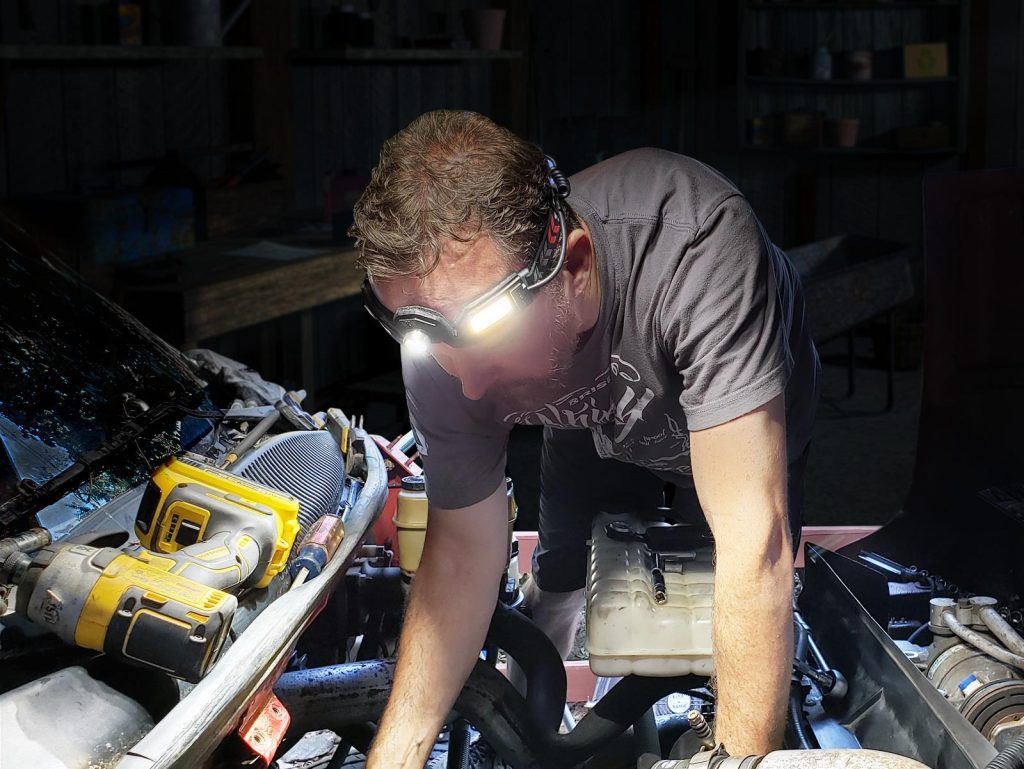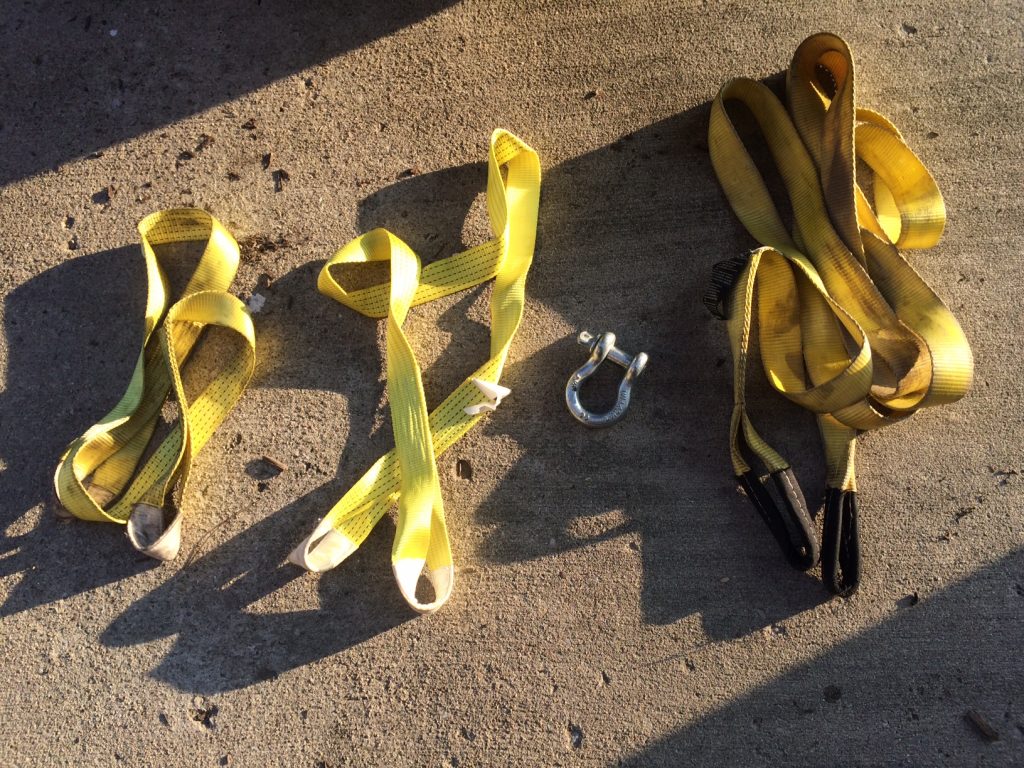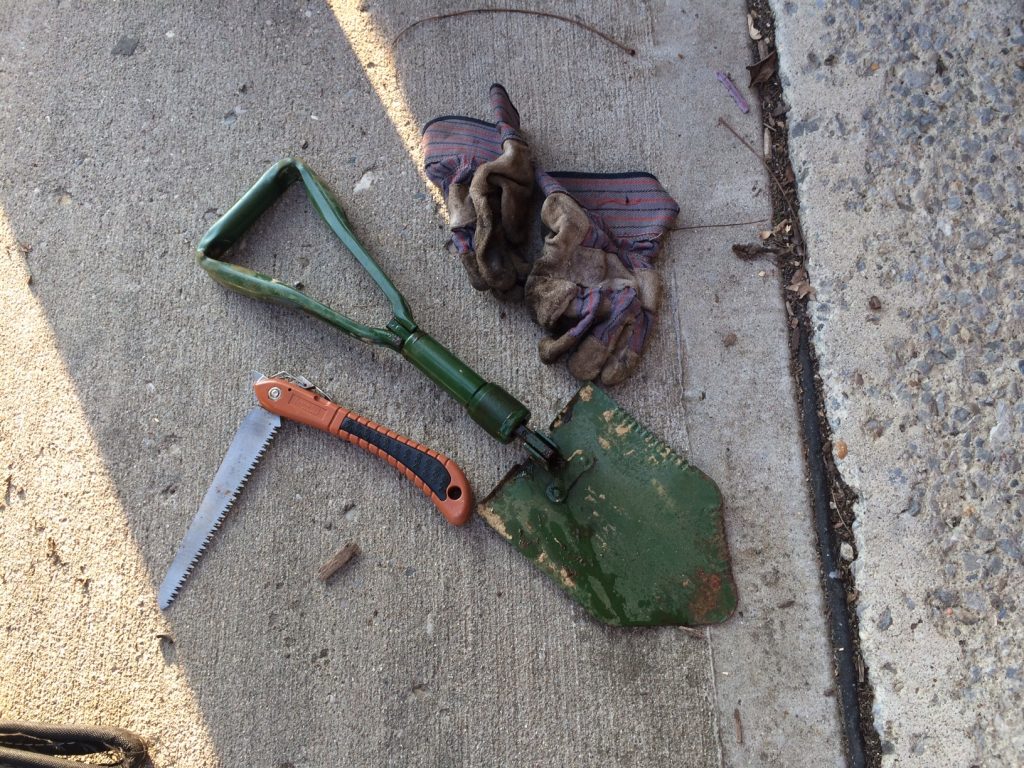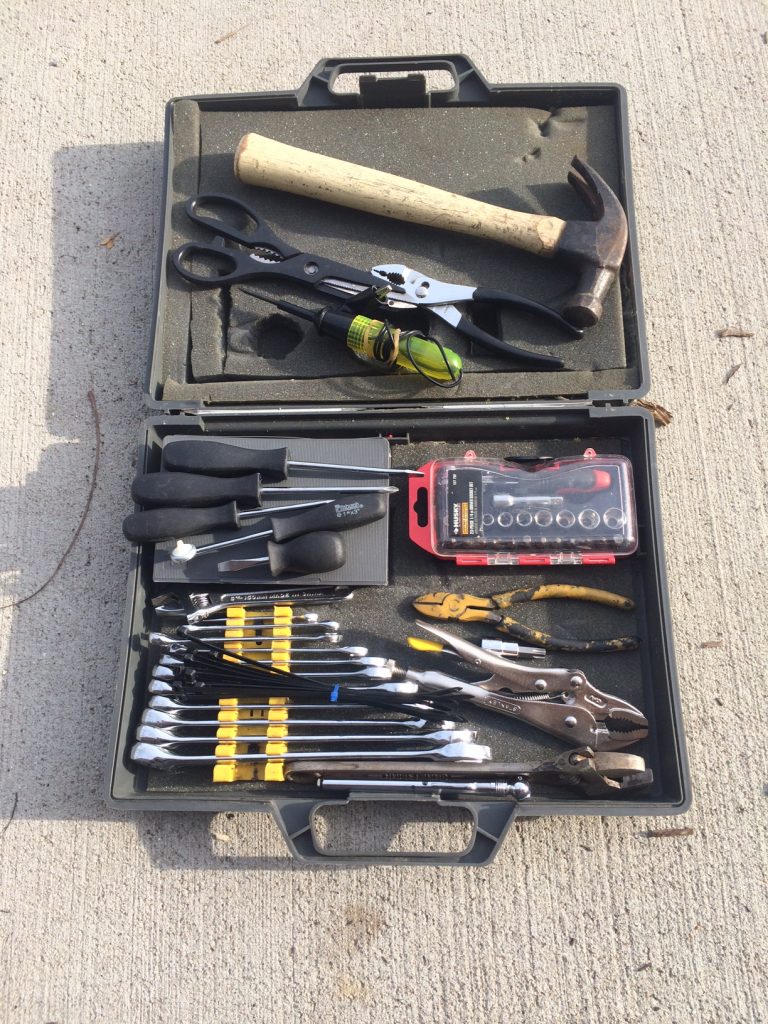While it’s easy to love the idea of overlanding through a pristine landscape, off-roading is tough. And having the right overlanding, off-road, and car camping gear is vital. So we’ve got a few Overlanding Essentials articles to help you tackle the terrain.
Not sure what overlanding is? Read this.
Let’s Talk About Overlanding, Camping & Off-Road Tools.
Overlanding is a fusion of camping and off-roading—which means your tools must cater to both. It also means you’ll need tools that you wouldn’t normally need for either a traditional camping trip, or a basic trail ride.
So we put together a checklist of some essential camping, off-roading, and overlanding tools that you may want to bring along on your overlanding trip.
Tip: You may want to hit your tools with high-visibility paint, in case you drop one while working in dim light.
Because no two overlanding adventures are the same, this is by no means a comprehensive list. At the very least through, this should get your in the mindset of choosing what you’ll need for your overlanding journey.
Don’t want to scroll?
Click here for a downloadable/printable PDF of our Overlanding, Camping & Off-Roading Tool Checklist.

A Checklist of Important Overlanding, Camping & Off-Roading Tools
- Work Gloves. Not for the cold, but for protecting your hands while you’re making repairs or a vehicle recovery.
- Flashlight. From simple trusty handheld torch, to a bright in-tent lantern, bring along plenty of light for your camping trip.
- Water Jugs. Not exactly a tool, but regardless of where you’re heading, clean potable drinking water is always essential.
- Flint/Matches/Lighter. Whether for recreation or necessity, fire is a camping mainstay.
- Jack/Jackstands. Anticipate changing a tire on the trail. For an off-roader with big tires, a bumper jack is almost mandatory.
- Storage Totes. Keeping things like food, tools, and clothing clean and dry is paramount. These’ll help.
- Zip Ties. These little miracle-workers have officially usurped duct tape as the handiest things, like, ever.
- Duct Tape/Racer’s Tape. Speaking of…in the bush, this is the go-to tent fixer, window sealer, hole patcher, and stay-shutter.
- Glue. A small bottle of super glue and a few tubes of two-part epoxy can be much-needed allies for makeshift repairs.
- Ratchet Strap Tie Downs. Perfect for securing loose cargo, supporting awnings, and keeping doors shut.
- Spray Lubricant. Something like WD-40 can stop squeaks, un-jam zippers, and handle a host of other useful campsite jobs.
- Folding Shovel. We mentioned this in our Overlanding Recovery Gear article, but a shovel is an essential piece of kit to help dig your way out of a jam.
- Folding Saw or Axe. Sometimes you need to get a limb or tree trunk off the trail. Axes can often double as a sledge hammer too.
- Phone/Radio. Communication is essential. Click here to learn more about off-road radio communications gear.
- Jumper Cables. A no-brainer here. You should just keep an extra set in your vehicles anyway (for yourself or to help others).
- Recovery Straps. Another pickup from our recovery article—these straps help you get un-stuck
- Clevis, D-Ring, or Tow Shackles. To complement your recovery straps. A good rule of thumb is pack one more than you think you’ll need.
- Batteries. Fill a bag with all the ones you think you’ll need—don’t forget extra ones for your phone or radio.
- Multimeter or Test Light. Depending on your skill level, bring along tools to help you fight electrical gremlins.
- Pry Bars. A set of large and small pry bars can be invaluable for a number of trail repairs.
- Clamps. For securing tents or positioning repairs, a handful of spring clamps and C-clamps provide an extra set of hands.
- Paracord or Rope. Standard hardware store rope has been an overlanding essential since the days of the horse and carriage.
- Socket Set. You may need it for more than just your vehicle, so take one that has both metric and standard sockets—perhaps even torx (star) sockets too. Depending on your skill level, don’t forget specialized sockets for wheel hubs or spark plugs.
- Scissors. Make sure they’ll work for fabric, hoses, zip ties, tape, and anything else you may need.
- Screwdrivers. Phillips and flatheads, in multiple sizes. Check your gear and vehicle to see if you’ll need any specialty bits too.
- Wrenches. Again, SAE and metric in a range of sizes.
- Hammer/Mallet. Good for driving tent spikes, fixing dents, and straightening handlebars.
- Side Cutter/Diagonal Cutter. Stronger than scissors, these come in handy for things like wire, thin metal, and zip ties.
- Pliers. Bring along a few different styles, EG large, small, needle-nose, and locking.
- Crescent Wrench. Valuable versatility—but buy good ones. Poorly-made crescent wrenches can slip and easily round nuts and bolts.
- Allen/Hex Key Wrenches. A lot of camping gear and auto accessories use allen bolts, so make sure you’re prepared.
- Knife. Since a clean cutting edge is a vital for so many jobs, you may want to bring along a few different blade types.
- Tire Repair Kit. Nothing ruins an off-road trip faster than a flat. Get one and familiarize yourself with how it works.
- Portable Air Compressor. Vital for repairs and airing-up your tires after airing-down for off-road traction.
- Traction Mats. Handy in mud, snow, and sand, these enhance your tires’ grip to get your vehicle un-stuck.
- First Aid Kit. Again, not exactly a tool, but it never hurts (pun intended) to have a redundant kit on hand.
- Fire Extinguisher. Hopefully you’ll never have to use it.
- Compass/Map. Don’t rely on a fancy GPS alone—a real paper map and magnetic compass should be on everyone’s overlanding checklist.
- Trash Bags. Good for storing dirty parts, makeshift tent repairs, and (most importantly) keeping trash secure.
- Extra Fuses. Between winches, auxiliary lights, and 12V-powered camping gear, you may pop a fuse or two.
- Electrical Tape. Off road vibration, sand, and grit eat away at wire insulation and cause shorts. Tape can prevent that.
- Wire Strippers. Another vital tool for working with electrical components.
- Extra Wire/Crimp Connectors. Critical for making emergency electrical repairs
- Crimping Tool. For making electrical connections, or re-securing loose ones.
- Vehicle Fluids. Engine oil, coolant, grease, transmission fluid, brake fluid, power steering fluid—bringing extra along can save a costly repair later.


Gloves, along with a saw & shovel are overlanding essentials. (Image/OnAllCylinders – Paul Sakalas)


[…] While it’s easy to love the idea of overlanding through a pristine landscape, off-roading is tough. And having the right overlanding, off-road, and car camping gear is vital. So we’ve […] Read full article at http://www.onallcylinders.com […]
[…] tool boxes are a no-brainer here as well. Just make sure your overlanding tools are stowed where they’re easily accessible if you need to make quick trailside […]
This is great, as a beginner I’m curious how this list will change for EV overlanding? Probably require less tools? Obviously assuming the charging networks are setup in the wilderness.
Yeah, there are a ton of variables left to figure out with EV off-roading. But it looks like Jeep, at least, is making some infrastructure investments for this sort of thing–check out this article from Car & Driver for details.
[…] Or, if you want a far more comprehensive list of equipment for something like a camping or road trip, check this out: Overlanding Essentials: Camping & Off-Roading Tool Kit Checklist […]